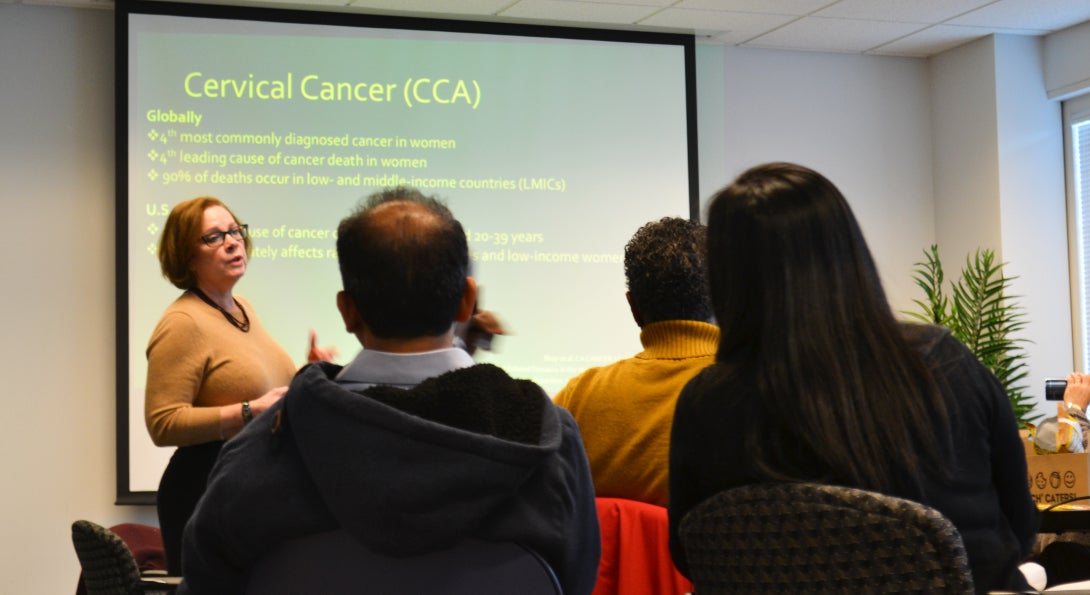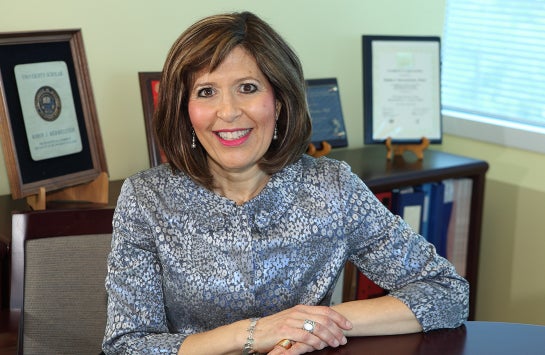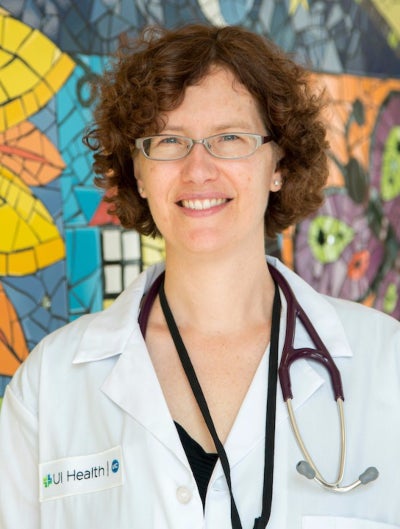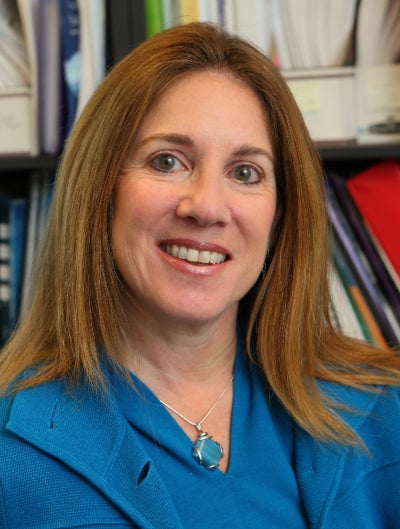Peering into the Future of Research

Leveraging its past, IHRP imagines an even more robust research future fueled by deeper collaboration and technology.
About IHRP

Since its founding in 1987, the Institute for Health Research and Policy (IHRP) has played a prominent role in boosting interdisciplinary health-related research. Its efforts have brought the University of Illinois at Chicago national recognition, attracted stellar faculty, secured external funding and resulted in cutting-edge research promoting improved human health.
And to hear Robin Mermelstein, PhD, tell it, IHRP is just getting started. Fueled by the fast-evolving world of research and its interdisciplinary ethos, IHRP stands eager to address some of society’s most pressing ills. “We have a long track record of breaking down traditional boundaries and see great opportunity ahead to advance our work and contribute to healthier lives,” said Mermelstein, one of IHRP’s founding leaders and its director since 2008.
An Accomplished History

A university-wide institute housed inside the School of Public Health (SPH), IHRP provides investigators a sound administrative infrastructure, research mentorship and connections to collaborative partners both at UIC and well beyond the university’s doors. Over three decades, IHRP’s layered support has empowered academics and clinicians to pursue ambitious health research that home departments might not have the interest or bandwidth to support. “When you’re talking about some of society’s biggest health problems, there is never one single answer,” Mermelstein said. “Obesity, for example, isn’t solely about genetics and metabolism, but also includes individual psychology, cultural values, policy and attitudes.”
Since its beginnings stemming from a grant from the Centers for Disease Control and Prevention to fund a Prevention Research Center, IHRP has evolved to support a broad range of high-quality interdisciplinary research, including the ambitious Bridging the Gap initiative led by renowned UIC-based economist Frank Chaloupka. Funded by the Robert Wood Johnson Foundation and featuring co-investigators with expertise in economics, policy, and adolescent heath behaviors, the nationally recognized project examined the impact of policies and macroenvironmental factors on adolescent substance use, diet and obesity.
In fostering collaboration among investigators throughout UIC, including public health, medicine, nursing, pharmacy, psychology, economics and sociology, IHRP has also supported novel research on issues such as smoking cessation, taxation, HIV prevention and urban violence. “By its very nature, public health is interdisciplinary and IHRP has added depth and richness here,” Mermelstein said. “We’ve helped people feel comfortable tackling big research questions and not to feel daunted by the scope or challenges of the research by taking an integrated, multitiered look at complex problems that have no easy solutions and approaching them synergistically.”
Molly Martin, MD, a professor in UIC’s Department of Pediatrics, came to UIC in 2014 specifically eager to leverage IHRP’s proven research infrastructure to support her work in community asthma and oral health. “IHRP has offered access to institutes and departments across campus and exposure to different research methodologies that drives more comprehensive research,” Martin said.
Preparing for the Future

As SPH marks its 50th anniversary in 2020, IHRP leaders and its affiliated researchers look ahead and see significant opportunity to blend the Institute’s collaborative focus and emerging research trends to confront some of human health’s stingiest problems. Mermelstein, for instance, foresees deeper integration with on-the-ground partners, including healthcare providers and systems who can help test models in real-world conditions and accelerate translation from basic science to execution. “More and more, we’re looking at what might shift everyday behaviors and make it easier to promote health,” Mermelstein said. “People knowing how they relate to other professions and ensuring a better hand off is a part of that.”
Others predict research will become even more inter-disciplinary, quickening a pace IHRP set more than 30 years ago. A policy expert and co-investigator on the Bridging the Gap project, Jamie Chriqui, PhD, holds research partnerships with a dietitian from the College of Applied Health Sciences and a researcher from the College of Nursing. She said the collaborative nature of IHRP propels more inquisitive research—and a hunger for deeper understanding. “The more we can learn from each other, the more we can draw upon each other, the better the research can be,” said Chriqui, a professor of Health Policy and Administration at SPH and co-director of the IHRP’s Health Policy Center.
As the principal investigator on an oral health study, Martin maintains partnerships with researchers in the UIC College of Dentistry, a pediatric anesthesiologist and a psychologist. On an asthma project, she works alongside colleagues with expertise in economics and clinical psychology. “If we’re all siloed in our colleges, then it’s hard to see shared interests and capitalize on collaborative opportunities that can drive important research,” Martin said. “IHRP ensures that doesn’t happen.”
Beyond collaboration with other health-related disciplines, Chriqui anticipates even greater engagement with east side of campus units, especially as UIC leadership champions East-West collaborations. Chriqui has had as many as 20 students from UIC’s College of Urban Planning and Public Affairs (CUPPA) working for her, and she expects CUPPA’s insights on zoning and land-use policy will continue to inform her work. “Health isn’t an isolated condition,” Chriqui said. “The environment we live in impacts health outcomes and that’s why partnering with CUPPA makes sense.”
Given the tech-driven nature of today’s world, IHRP leaders also see ties to UIC engineering and computer science expanding. Experts in those areas can help enact more efficient and robust data mining, develop improved ways to conduct surveys and compile information and create technological tools that work as in-the-moment interventions spurring positive health choices. “By accelerating the work we’ve been doing and continuing to forge new partnerships, I see a broader lens to the public health work we do that will advance science and promote healthier living,” Chriqui said.
Emboldened by its past successes, driven by its collective ambition and empowered by evolving research approaches, IHRP stands well positioned to continue its run as a research driver for UIC that also stimulates healthier lives. “Moving forward with our interdisciplinary team science, I feel we’ll be able to tackle challenges at an even larger level, and that’s incredibly encouraging,” Mermelstein said.